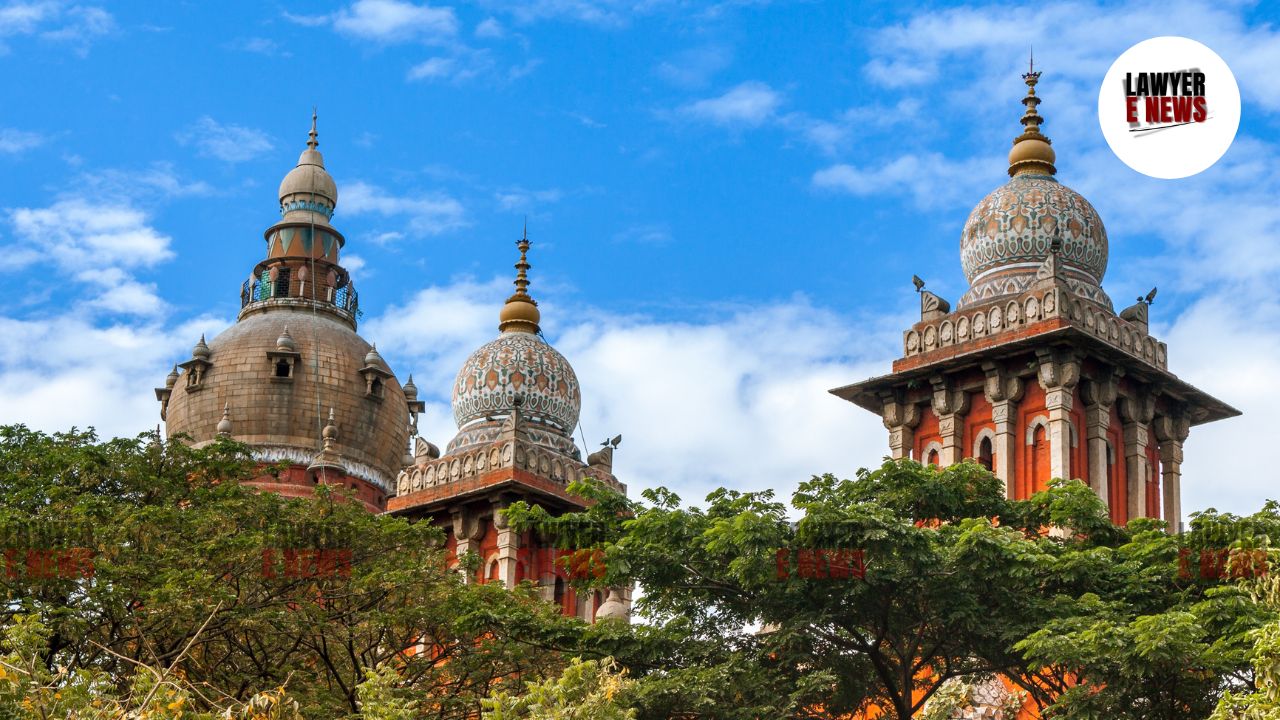-
by sayum
14 February 2026 2:22 PM



In a key ruling Madras High Court (Madurai Bench) quashed criminal proceedings initiated against Thirumaran, a political leader accused of making provocative remarks during a YouTube interview. The case, registered under Sections 504 and 505(2) of the Indian Penal Code (IPC), alleged that his statements insulted a former Tamil Nadu finance minister and promoted communal disharmony.
Justice N. Anand Venkatesh, while allowing the petition filed under Section 482 of the Code of Criminal Procedure (Cr.P.C.), held that the statements, even if taken at face value, did not incite enmity or ill-will among different groups or meet the legal requirements of Sections 504 and 505(2) IPC. The Court also emphasized that the continuation of the proceedings amounted to an abuse of the judicial process.
No Offense Under Sections 504 and 505(2) IPC
The petitioner, Thirumaran, had been accused of making derogatory statements against the former Tamil Nadu finance minister and criticizing the management of Hindu temple properties by the Hindu Religious and Charitable Endowments Department (HR & CE).
The Court clarified:
Section 504 IPC: Requires intentional insult designed to provoke a breach of peace. The Court held that the petitioner’s statements, while critical, lacked the intent to provoke violence or disturb public peace.
Section 505(2) IPC: Deals with promoting enmity between groups. The Court found no incitement of hatred or ill-will between religious communities in the petitioner’s remarks.
The Court observed:
“The petitioner’s statements, even if taken as they are, do not incite hatred or promote enmity. Criticisms of administrative practices do not qualify as hate speech under the law.”
Freedom of Speech vs. Hate Speech
Justice Venkatesh acknowledged the petitioner’s freedom of speech under Article 19(1)(a) of the Constitution but emphasized that such freedom is not absolute and must align with Article 51A(e), which imposes a duty to promote harmony and brotherhood among citizens.
The Court highlighted:
“The right to free speech cannot extend to making reckless or provocative statements. Citizens have a fundamental duty to promote harmony and avoid actions that could disrupt communal peace.”
Imputations Against the Minister
A significant portion of the YouTube interview involved allegations against the former finance minister and his family. While the Court found these remarks distasteful and defamatory, it held that they could at most result in defamation proceedings but did not constitute offenses under Sections 504 or 505(2) IPC.
Remarks on Religious Property Management
The petitioner had argued that Hindu temple properties should be managed exclusively by Hindus, similar to the practice in other religious communities. The Court concluded that these remarks:
Did not demean other religions.
Did not incite hatred or violence against any religious group.
Reflected the petitioner’s opinion about administrative practices, which cannot be criminalized unless they incite enmity.
The Court noted:
“The petitioner’s criticism of the HR & CE Department was strong and rude but fell short of constituting hate speech under the law.”
Rubber Stamp Cognizance by Trial Court
The Court found that the trial court had mechanically taken cognizance of the case without applying judicial mind. Justice Venkatesh remarked:
“The process of taking cognizance is a judicial act that requires careful application of mind. Rubber stamp cognizance undermines the sanctity of the judicial process and cannot be upheld.”
The Court cited earlier judgments, including Shanmugam v. Inspector of Police (2019) 3 MLJ (Crl.) 339, to reiterate that judicial cognizance must not be reduced to a mere formality.
Legal Principles Reiterated
Freedom of Speech is Not Absolute
Statements that are reckless or provocative and have the potential to incite communal disharmony are not protected under Article 19(1)(a).
Standard for Section 505(2) IPC
Mere criticism of administrative practices, without inciting enmity or hatred between groups, does not constitute an offense.
Judicial Responsibility in Taking Cognizance
Courts must carefully evaluate the evidence and apply judicial mind before taking cognizance of a case.
The High Court quashed the criminal proceedings, stating:
“The continuation of proceedings in C.C. No. 548 of 2021 would only result in abuse of the judicial process, as no prima facie case has been made out under Sections 504 and 505(2) IPC.”
All connected miscellaneous petitions were also closed.
Date of Judgment: December 13, 2024
